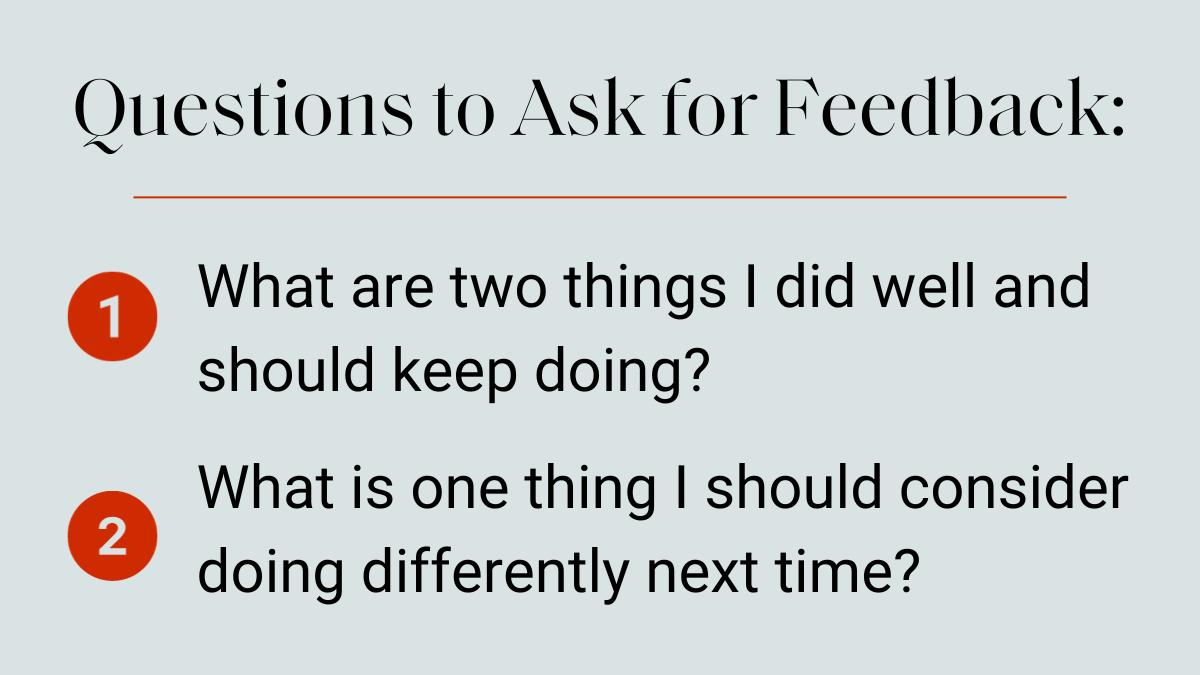Why a Feedback-Driven Culture is Absolutely Critical for Growth
This past week, a member of my team said that in her first six months working for me, she received more feedback than in 15 years working at a big corporation.
I’ve been thinking a lot about what she said. In fact, one of the things I’m most proud about of my team is that we have built a real culture of feedback. Several of our clients this past year have noticed it, too. While it can be hard to both give and receive feedback, it is by far the most impactful strategy I have seen to inspire growth.
As we continue to dive into 2024, I want to share with you why a culture of feedback is critical to the success of you as a leader and to your company as a whole. Learn how you can start creating this culture today.
The Importance of Feedback for Olympic Rugby Players
Feedback is embedded into my work as a leader and executive coach, and it directly traces back to my experience coaching rugby. When you’re working with elite players who want to get to a World Cup or an Olympics, feedback is absolutely critical. It’s what drives their growth.
These are players who have shaped their entire lives around the pursuit of their goal to compete at the highest level of this sport. They make sacrifices daily and put in the hard work. They are focused on how to make the incremental improvements that will ultimately determine their success.
The players track, measure, and analyze how they sleep, eat, practice, and perform. As coaches, we had GPS data on exactly how far they ran, how fast they were, and what their heart rate was. Every single metric measured was designed to be interpreted so that micro-adjustments could be made. Players were eager to hear this and make helpful changes.
After each match, I would start by asking players, “What do YOU think you could have done better in this game?” Players often were spot on with their self-reflections. Then, I would fill in the gaps as a coach and share what I noticed the team or individual players could do differently to be more effective next time. Feedback is what helps elite rugby players become better players and a better team, able to win more matches. It's what can make or break their goal of getting to the World Cup or Olympics.
Carrying Lessons From the Pitch to the Office
When we move from the rugby pitch to the office, the focus on feedback tends to go out the window. Rather than the lifeblood of performance that it is in sports, feedback is often seen as a criticism in the workplace. It is not embedded in most company cultures like it is in an Olympic rugby team culture.
As I outline in my new book, Leadership Shock, leaders who are transitioning to a new role face a particular challenge when it comes to feedback. With their promotion, they now have new people reporting to them—people they might not have an existing relationship with. It can feel awkward and uncomfortable to both give these people feedback and ask for it in return.
But we need to push through and change this. Without feedback, our teams and ourselves will stagnate. Even if we have the tools to measure performance, we’ll keep making the same mistakes over and over again. We won’t grow, improve, or perform any differently. Held back by what we’re not sharing with one another, we won’t achieve our Olympic- or World Cup-level goals.
As a leader, you have the power to model how to give and receive feedback so that it eventually becomes embedded in your company culture. I challenge you to think of your employees as world-class athletes on an elite team. Feedback is critical to your collective success and growth.
Two Simple Questions to Start Asking Now
Creating a company culture of feedback starts with YOU modeling it. As a leader, your team will start to see that feedback isn’t about focusing on what was wrong, but about the opportunity to perform better next time. Just like in sports, feedback will bring success to both the individual and to the team.
Start with the self-reflection piece. After your next meeting or conversation, take a few moments to reflect on how it went and what you might change next time. Then, open it up to the group.
Try incorporating feedback into everything you do as a manager and a leader. On my team, whenever someone leads a call between us or with a client, I give them feedback. If I’m leading the call, I’ll ask for feedback at the end. It has become second nature.
Here are two questions you can get in the habit of asking. They are the easiest and most impactful feedback phrases I have found.
What are two things I did well and should keep doing?
What is one thing I should consider doing differently next time?
Not so bad, right? Start using these two simple questions any chance you get. You’ll break down the fear around feedback and make it a part of your company culture. I guarantee you that doing so will boost your performance, growth, and success in the year ahead.
Pete Steinberg is an elite rugby coach, leadership consultant, and bestselling author. He can help you and your organization overcome challenges and achieve unparalleled success. Pete’s first book, Leadership Shock, is now available for purchase at all major retailers. You can connect with Pete on LinkedIn and at PeteSteinberg.com.




